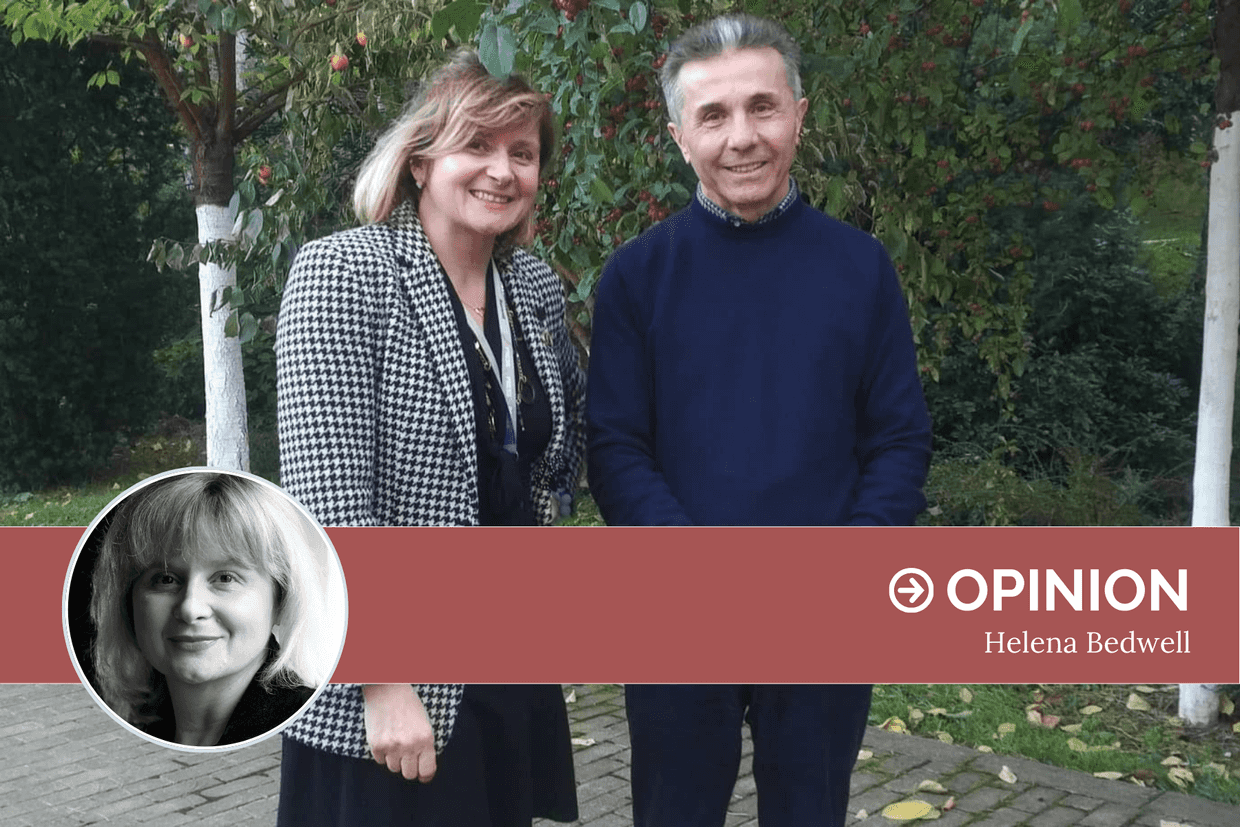
Members and supporters of Georgia’s ruling party have lept to the defence of party founder Bidzina Ivanishvili, even questioning the country’s EU membership aspirations, after the European Parliament passed a resolution suggesting Ivanishvili might be sanctioned.
On Thursday, the European Parliament passed a scathing resolution reprimanding the Georgian authorities for the growing threat to journalists, criminal cases against media managers and owners, a lack of institutional reforms, and a failure to punish the organisers of last summer’s riots in Tbilisi. It also called for the EU to consider sanctioning Ivanishvili.
Ivanishvili has held no official government post or position in the ruling party since he announced he was retiring in January 2021, however, critics insist he continues to exert control over the government.
The resolution comes just weeks before Georgia, along with Ukraine and Moldova, is expected to find out if the EU will grant the country candidate status. All three submitted applications to join the bloc following Russia’s invasion of Ukraine.
Members and supporters of the ruling party have jumped to Ivanishvili’s defence after the resolution was passed, with some even questioning Georgia’s EU membership ambitions.
Georgian Dream MP Dimitri Khundadze described the resolution as ‘intereference in the state’s internal affairs’ and a ‘violation of the country’s independence’.
‘We won’t give up our dignity to get [candidate] status!’, he said on Friday.
‘No one will intimidate Bidzina Ivanishvili or the Georgian state with threats of sanctions! […] If Georgia is to get [candidate country] status with unjust obligations, like those unfair accusations reflected in the resolution, then Georgia’s fair response should be its rejection’, he said.
Georgian public opinion has been consistently and overwhelmingly in favour of EU membership for over a decade.
Other Georgian Dream MPs, like Davit Matikashvili, underlined Ivanishvili’s philanthropic work.
‘What kind of sanctions are they demanding from the European Parliament — sanctions for building or reconstructing Sameba Cathedral and numerous other churches?!’, he asked on Thursday. ‘For preserving and saving lives and health of thousands of Georgian citizens?!’
Almost immediately after the content of the resolution became public, pro-government TV channels Imedi and PosTV focused overwhelmingly on allegations from the ruling party that the opposition United National Movement (UNM) had lobbied for the resolution.
Virtually no coverage was devoted to the government being criticised for their failure to deliver institutional reforms, including of the judiciary.
‘Sanction your own parents — parent 1 or parent 2’, PostTV anchor Shalva Ramishvili wrote on Facebook on Thursday, parroting a common right-wing talking point claiming that the West was attempting to remove traditional family roles.
Gia Gachechiladze, a popular far-right campaigner known as Utsnobi, also weighed in.
‘If the path to Europe goes through sanctioning Bidzina, through involving us in war, we don’t want it. We don’t want that sort of Europe nor America; we’ll take care of ourselves’, he told Imedi on Thursday.
In response to criticism for not showing stronger support for Ukraine, Georgian Dream has consistently accused both the Ukrainian government and the UNM of seeking to involve Georgia in a war with Russia.
Despite the scathing criticism of his government from Brussels, Georgian Prime Minister Irkali Gharibashvili, a close confidant of Ivanishvili’s, had not made a public statement on the resolution as of Friday afternoon.
‘De facto sanctioned since March’
Thursday’s EU parliament resolution expressed ‘concern’ over Bidzina Ivanishvili as an ‘oligarch’ playing a ‘destructive role’ on Georgia’s politics and the ‘level of control he exerts over the government and its decisions, including those on the politically motivated persecution of journalists and political opponents’.
While Ivanishvili, a reclusive and wealthy man, has kept silent on the issue, his lawyer, Viktor Kipiani, assured the public that he had ‘adapted to the pressure calmly’ but planned to defend his interests through legal means.
Kipiani is among those representing Ivanishvili in his dispute with Swiss bank Credit Suisse for allegedly mismanaging his accounts.
‘Starting from 4 March […] we have been living and operating as de facto sanctioned’, Kipiani noted on Thursday, alleging that that was the first time Ivanishvili experienced problems accessing his property.
[Read more: Georgian Dream leaders jump to Ivanishvili’s defence over new Credit Suisse dispute]
Earlier, in May, it became known that Ivanishvili had had trouble moving artwork he owned from New York and London.
As Georgia’s richest man, Ivanishvili was largely responsible for ousting the government of then-President Mikheil Saakashvili from power in the 2012 elections. Following the victory, Ivanishvili took over the government as Georgia’s 7th Prime Minister, claiming to leave politics 13 months later.
In the spring of 2018, he announced his comeback, declaring his retirement from politics once again in January last year, months after Georgian Dream secured their third consecutive parliamentary victory.
Ivanishvili’s critics have insisted for years that he has continued to rule Georgia informally, and was also behind the Georgian government’s unwillingness to more strongly support Ukraine.
Thursday’s European Parliament resolution stated that the EU was ‘deeply worried by Ivanishvili’s exposed personal and business links to the Kremlin, which determine the position of the current Government of Georgia towards sanctions on Russia’.
While the European Parliament’s resolution is not binding for the European Commission, this is the first time sanctions targetting Ivanishvili personally have been suggested at such a high level.









